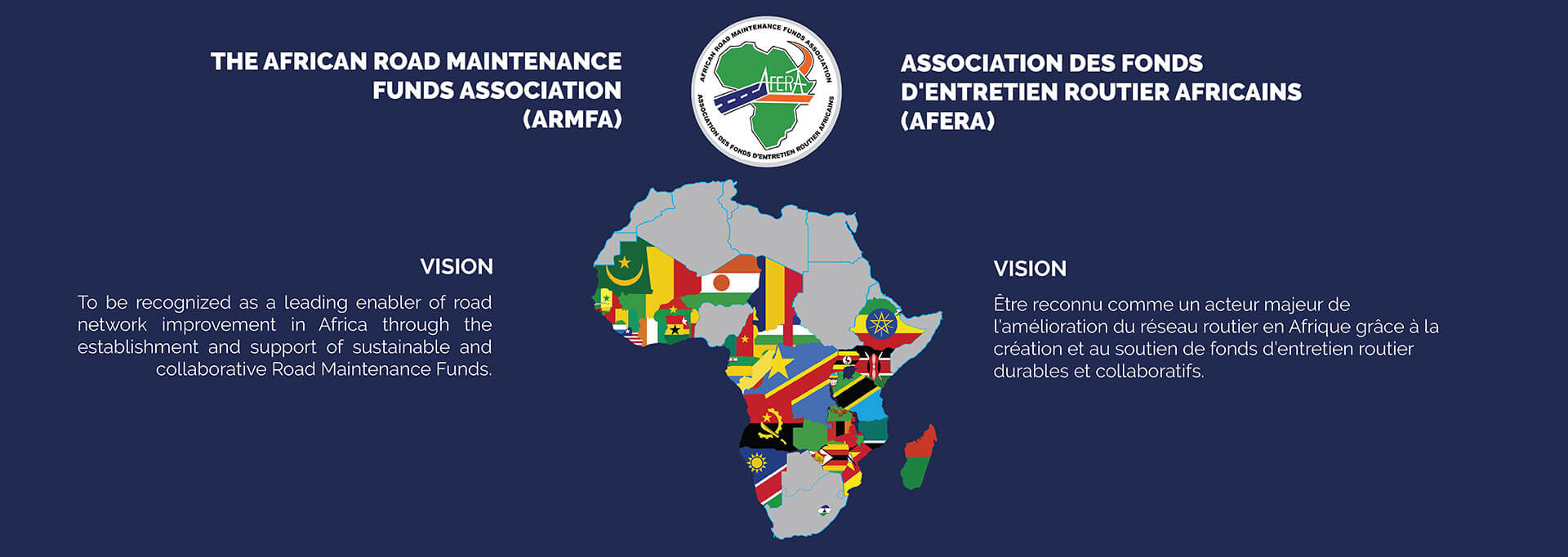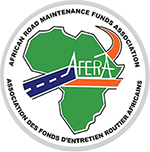
Our Mission, Vision & Values
Our Mission
To promote sustainable and well-performing Road Maintenance Funds for better and safer road conditions and increased coverage within and across African countries, that will enable economic, social, and environmental development through meaningful strategic partnerships and developing and sharing useful knowledge, tools, and best practices.
Our Vision
To be recognized as a leading enabler of road network improvement in Africa through the establishment and support of sustainable and collaborative Road Maintenance Funds.
Core Values: Guiding Principles for Sustainable Road Sector Development
ARFMA-AFERA’s Core Values represent the foundational, non-negotiable standards that guide all road sector stakeholders in the implementation of our strategic initiatives. These values define the collective approach and unwavering commitment with which we work towards realizing our shared vision for road safety and infrastructure excellence across Africa. The six core values and principles that underpin our operations are:
Professionalism:
We consistently apply proven skills, extensive knowledge, and valuable experience to every facet of our operations. Our duties are executed with strict adherence to the highest professional standards, established skills, and industry guidelines, ensuring the integrity and quality of road maintenance projects.

Partnership:
We are dedicated to collaborative teamwork, working seamlessly with both internal and external partners to achieve our shared objectives. This collaborative spirit is essential for fostering effective road infrastructure development and sustainable road financing.

Inclusivity:
We ensure that all our members feel valued and fully included within ARFMA-AFERA, irrespective of their size or status. We actively promote equality and steadfastly uphold the principle of “strength in diversity,” recognizing that diverse perspectives enhance our collective efforts in African road asset management.

Integrity:
We uphold and maintain the most stringent standards of ethical behavior and strictly adhere to the rule of law. Our actions are consistently guided by strong ethics and are entirely free from corruption. We are committed to lawful processes and institutions that accurately reflect the legal frameworks of the countries and communities we serve, ensuring transparency in road maintenance funds.

Innovation:
We enthusiastically embrace creative ideas and cutting-edge technologies to continuously improve the quality, effectiveness, and efficiency of road maintenance financing. Through dedicated research and development, we generate new knowledge, develop advanced tools, and establish best practices in road maintenance and safety, driving progress in African road networks.

Transparency:
We are consistently open, fully accountable, and highly responsible to all our stakeholders, particularly in the meticulous management of ARMFA funds. We remain steadfastly committed to providing clear and accurate reporting to our members, fostering trust and confidence in our operations and financial stewardship of road infrastructure investments.

These values collectively ensure that ARFMA-AFERA operates with the highest standards of excellence, fostering a collaborative and ethical environment for the sustainable development of African road infrastructure.

Background on Road Management and Financing Reforms in Africa
Since the late 1990s, Africa has undergone significant changes in its approach to road management and financing. It became increasingly evident that traditional models—relying on the management of roads through government departments and financing through general budget allocations—were largely ineffective.
The performance of early Road Funds in Sub-Saharan Africa was generally poor. Common issues included weak financial management, lack of independent institutional status, misuse of funds for unauthorized expenditures, diversion of resources, and inadequate oversight. As a result, many of these so-called “first-generation” Road Funds were eventually shut down, often at the urging of institutions such as the World Bank and the International Monetary Fund (Heggie, 2003; SSATP).
In response to these challenges, the Road Management Initiative (RMI) was launched in 1997. This donor-funded, World Bank-managed program aimed to support the formulation and implementation of sound policies in the road sector across Africa.
Over the following decade, the RMI worked with interested African countries to diagnose the root causes of ineffective road management and to develop a reform agenda to enable sustainable management of public road networks.
